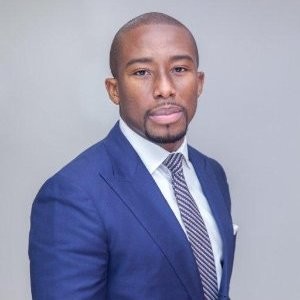The Executive Director of Oando plc, Dr. Ainojie ‘Alex’ Irune has urged stakeholders in the oil and gas industry to act now to resolve the challenges facing the industry for the benefit of all Nigerians and the Nigerian economy.
Dr. Ainoji Irune who is also the Chief Operating Officer ( COO) of Oando Energy Resources said the industry is currently in a state of emergency and needs to be rescued. “I think the entire oil and gas sector in my humble opinion, not an Oando comment, is in a ‘state of emergency’, we can dance around the issues and talk about an approach, but we have to act now.
Alex Irune who was a member of one of the penal of discussants that spoke on the theme: Innovation Collaboration, Resilience: Empowering Independent Producers in the Dynamic Energy Era, at the just concluded Nigerian International Energy Summits (NIES) said that the first thing every single stakeholder either as business owners, regulators, government, must realize is that they are now presently facing problems that they should have dealt with 20 years ago.
“Imagine the satisfaction of accomplishing in just one week what you’ve been struggling with for months. By finding a higher level of ourselves, we can overcome all concerns, approvals, procurement, supply value chain delays, and bureaucracies. Let’s commit to this challenge and experience the sense of achievement and relief that comes with completing it.”
“History will be written about this age and we need to have something written in gold against our names,” he said.
He said: “The last time I was on this stage, I spoke about being impatient about the development of the oil and gas sector and creating value for our people, today we face as simple as currency escalation, and one single industry that can provide the bulk of the fund to support the economy is the oil and gas industry.”
On local value creation, he said, if the assets are leased to local independents, all the values stay in-country.
On steps to be taken to ensure there is no delay in the divestment process concerning the assets that have been divested, he said that Nigeria has long-term problems but she is using short-term fixes, adding that the biggest challenge the country has today has to do with the foundation of the industry.
“The Petroleum Industry Act (PIA) is a great base for us to start from, but what we have done is that we waited 20 years to evolve the law of our industry, so we are all effectively confronted by this bottleneck in almost every aspect of the law, but again, with collaboration, good supervision, and regulation, it means we can get through the problems but that will take time and this is something we have to understand. We need to focus on how we can be helped to get through the bureaucracy that typically exists in the process of closing these deals.
“There is the need for the ‘Consent’ to come quickly, we don’t have time, we do need to get on these assets and start working on them,” he said.
On declining production, he said, “I can tell you for a fact that it has to do with operating philosophy, we have an asset where even though we bought into it at a very significant amount, we are not in the driving seat, now you must understand that operators have very big engine when it comes to their operating footprint. Now, as the assets decline by about 10,15, and 20 percent, that big engine still needs to be looked after. So, effectively, you have a very huge cost base on a very low production volume.
“This in itself requires a lot of thinking and twinkling of your operational philosophy and your operating methods. You will notice that all independents have spoken, they spoke about scaling up slowly, ensuring that they ring fence projects, delivering on time, largely sole risk, and ensuring that bureaucracies that show MPVs don’t exist or are reduced to minimum in their projects. When you look at it from that perspective, it is a completely different game when you have an independent in control versus an independent that is a non-operating partner.

